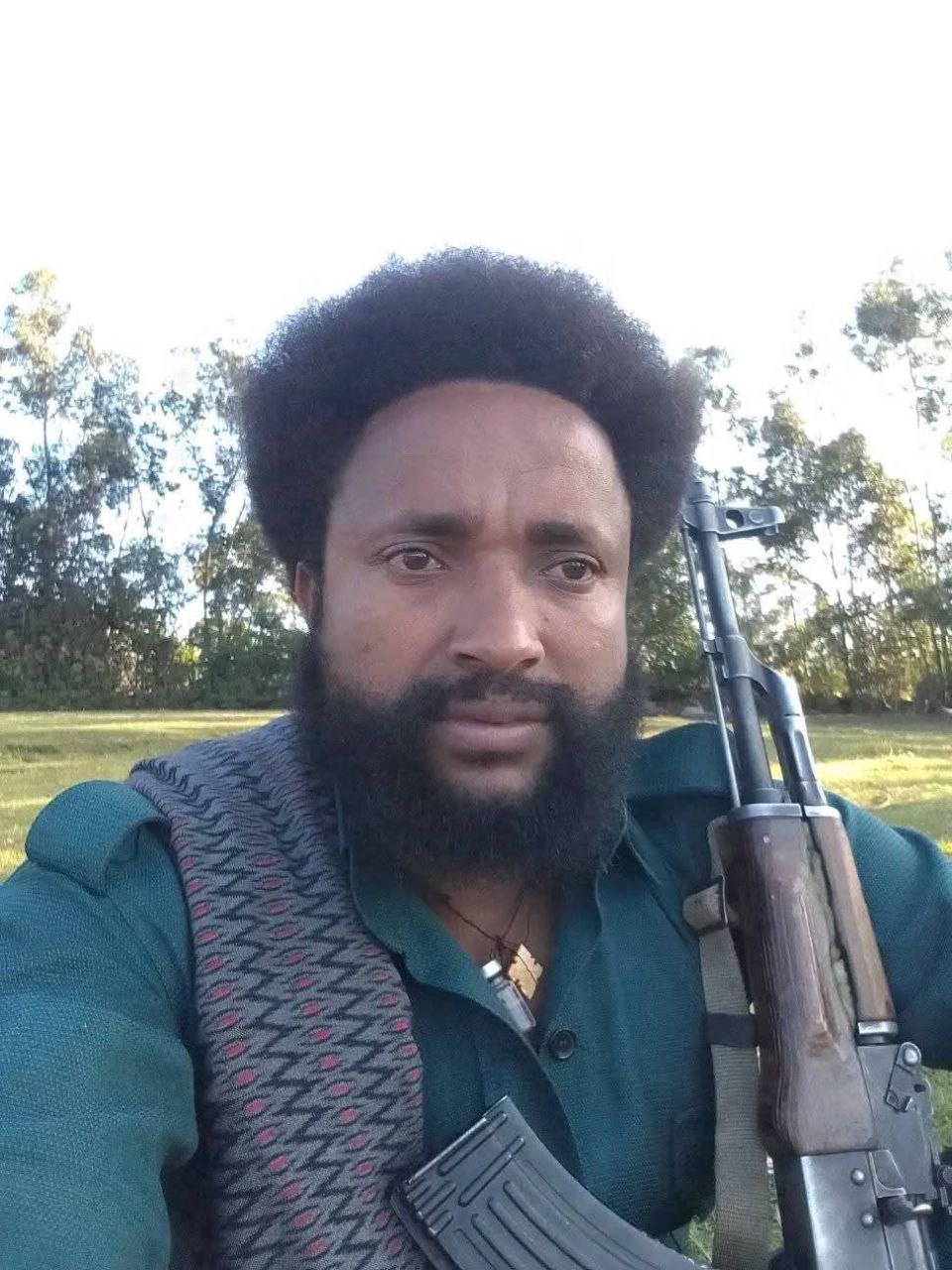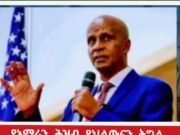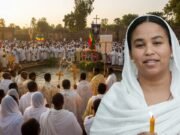Acceptance speech on behalf of Eskinder Nega, the World Association of Newspapers and News Publishers, Torino, Italy, 9 June 2014.
Ladies and gentlemen – members of the press.
I really wish I did not have to do this.
This morning, I thought, what if I get a phone call from Addis Abbeba and a cracked voice says: “Tafatchi! I am free. I will come and receive the Golden Pen myself”.
It did not happen. A couple of hours ago, Eskinder Nega woke up to the shouting of “Kotera Kotera Kotera” from the loudspeakers, mixed with the police banging with their sticks on the walls of corrugated steel.
Eskinder than stood, “Hulet, hulet”, “two and two” outside in a long line through the mud. When all 200 inmates in his room where accounted for, the door was locked again behind him.
I am here on behalf of a colleague.
And even though I am free from that very same prison, I will never be free from the memories, or the sounds.
The first screams were always the worst, the frightened sound before the first stroke. Towards the end the abused prisoner was always silent.
Six disease-ridden cells around a small yard with inmates coughing blood, overridden with lice, fleas and rats called ”Sheraton” by the inmates because, even if it was bad, the small dark cells where humans were kept like animals – standing chained in the dark, hanged upside town, and beaten until they confessed their made up crimes – were worse.
The inmates named these cells “Hilton”.
Humour is the last line of defence.
But the worst thing with the federal police station Maekalawi, during this rainy summer month of July 2011, was not the methods, but rather who the Ethiopian Government had chosen to put there. In the cell to my right was journalist Wubshet Taye, in the cell in front of me was Reeyot Alemu.
The fear of an Arabic Spring had led the Ethiopian regime to act rather than risk being acted upon. Journalists were charged as terrorists and the Arabic Spring turned into an early African Autumn.
On the outside, one person stood up for all of us in our cells.
One person dared to question the government’s ludicrous claim that we, the jailed journalists, were terrorists.
One person said that the anti-terrorist law was used as a pretext to detain journalists, and was critical to the government
Five days later, Eskinder Nega was arrested – and later sentenced to 18 years.
His criticism of the law got him arrested, for violating the law.
It was the sickest of jokes.
I see this Golden Pen of his as an honour, not only for enduring more than 1000 days in jail – but above all for the journalism that led him to Kality.
Eskinder Nega and his wife Serkalem Fasil’s contribution to bringing new blood into the Ethiopian media industry has been immense over the years. Together they showed what journalism could and should be, but too often isn’t.
His articles were to the point provocative, they expanded the public sphere and signalled a new beginning that made it easier to breath for the readers.
The couples’ newspapers have been instrumental for the development of journalism in Ethiopia.
But he payed a price for the generations to come. The highest price.
He both payed with his freedom.
Looking back at his life we must remember that Eskinder Nega at many points faced a choice. He is intelligent, well educated, he could have chosen an easy life, he could have chosen another profession, but the love for the truth, for his country, for his fellow human beings, and for Ethiopia, made him into journalist.
He stayed. And he continued to write.
That decision brought him to the dark cells.
Not one time. But nine. Nine.
His stubbornness is demonstrating a brand of moral courage that we need now more than ever. And courage is the only thing he is guilty of.
In Kality, at this time of the year, at the start of the rainy season it is burning hot in the daytime and freezing cold at night. The rooms are more like barns with concrete floors, and it is so crowded that you have to sleep on your side. Prisoners are packed likes slaves on a slaveship. Once a month an inmate leaves with his feet first.
But, thinking back, the most difficult part in Kality was not the diseases or the torture. It was the fear of speaking.
It’s not the guard towers with machine guns that keep the prison population calm. It is the geography of fear.
People who speak politics are taken away. They disappear. This eats its way into your soul. I could wake up at night afraid I had said something negative about the government in my dream.
It went under your skin.
In such a situation, fearless people like Eskinder Nega help the whole prison population to keep their dignity. By still writing. Protesting. Not giving up. He helped us all maintain our humanity.
But there is one thing I know that even Eskinder fears. That is to be forgotten.
When you’re locked up as a prisoner of conscience, this is the greatest fear and the support from the outside is what keeps you going.
This Golden Pen award will not set him free tomorrow, but it will ease his day today.
He will go with his head high knowing that he is there for a good cause.
That the pain and suffering has a meaning.
That he is on the frontline in a fight that has turned global. And in that sense this Golden Pen is more important than food, medicine and water.
It materialises the support and shows that he is not forgotten.
That he is one of us.
That an attack on one journalist is an attack on us all, and that jailing a journalist is a crime against humanity.
To take a stand for Eskinder is also to take a stand for all those courageous journalists who should be here with us today in this room.
But he is not only a symbol. He is also, and foremost, a human being of flesh and blood. He is a father, with a wife and a now an eight-year-old son. To demand his release is also to reunite a family that has suffered more in a mental prison over the years than any one should have to suffer.
In a letter smuggled out to his eight-year-old son, Eskinder Nega wrote:
“ … The pain is almost physical. But in this plight of our family is embedded hope of a long suffering people. There is no greater honour. We must bear any pain, travel any distance, climb any mountain, cross any ocean to complete this journey to freedom. Anything less is impoverishment of our soul.
God bless you, my son. You will always be in my prayers.”
When I read these words by Eskinder I know that they will newer break him. Because he is in peace with himself. He knows that even though he is chained, robbed of his physical freedom, the freedom to talk or to be silent, the freedom to drink or eat, and even to shit. He knows, as do all prisoners of conscience, that you have it in you to keep the most valuable, the freedom that nobody can take from you, the freedom to determine who you want to be.
Eskinder is a journalist. And every day he wakes up in Kality prison is just another day at the office.
A couple of weeks ago the Ethiopian election campaign started with the jailing of nine more journalists. The crackdown was a flashing alarm to the world that no one is safe. That there is a hunting season for journalists in Addis Abeba.
But despite this difficult situation there is light.
Eskinder Nega’s courage has turned out to be contagious; a new generation is stepping up. A generation of young cheetahs have been taking enormous risks writing, Tweeting and speaking truth to power, demanding the jailed to be released.
It is hopeful.
It shows that they can jail journalists but they can never succeed in jailing journalism.
Words led Eskinder Nega to Kality prison.
And in the end it must also be words that set him free.
When I see this Golden Pen of his, look back, and think of Eskinder who is left behind in the chaos, on the concrete floor, between walls of corrugated steel I feel sick to the stomach.
But then I remember his smile and his strength and I think that at the end of the day, it’s not us that are fighting for his freedom – but rather he who is fighting for ours.
Ayzoh Eskinder! Ayzoh! (translates: be strong, chin up).
Martin Schibbye is a Swedish journalist who, together with photographer Johan Persson, was sentenced to 11 years for covering the conflict in the closed Ogaden region by entering Ethiopia illegally. Their reportage about oil was transformed into a story about ink, and their daily lives turned into a 438 day long fight for survival inside the notorious Kality prison in Addis Ababa. Both were pardoned after 14 months of confinement. Schibbye and Persson have recently published a book in Sweden, about their prison experience, “438



























